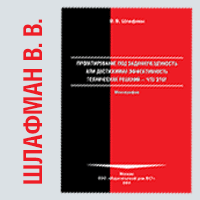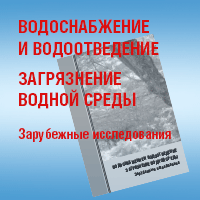№4|2017
WATER DISTRIBUTION NETWORKS
bbk 000000
UDC 628.144:532.542
Flow distribution in water supply and distribution systems with automatic pressure regulators
Summary
The task of flow distribution in general pipeline systems including the systems of water supply and distribution with automatic pressure regulators is considered. To improve the reliability of the system operation pressure regulators are often installed «downstream» (reducing valves) and «upstream» (tank release valves). Pressure regulators manufactured by Bermad have been installed in the water distribution networks of Irkutsk; that provided for reducing and stabilizing the pressure in some zones. However zones exist that are supplied from several water pipelines with different pressure at the connection points, therefore sometimes complete closing of some regulators occurs (more often with small diameters) or flow reversal is possible, and the water flows through the regulator in the opposite direction. In this case the regulator fails to fulfill its function. Mathematical modeling of such situations is very important because it is them which significantly complicate the operation of the water supply and distribution systems. Mathematical models of automatic «upstream» and «downstream» pressure and pressure drop regulators are suggested with account of their version: normally open or normally closed. The mathematical formulation of the problem of flow distribution in the systems of water supply and distribution with pressure regulators is presented. The critical for the practice task of flow distribution in the pipelines with automatic regulators has been solved for the setting that describes different scenarios of the automatic regulators operation. A simple and efficient method of solving the set task of flow distribution that does not require derivation and has rapid enough convergence is suggested. On the basis of the numerical experiments it is fair to assume that the number of iterations moderately depends on the dimension of the problem (number of nodes and semicircular arcs), considerably depends on spread of hydraulic resistance values and to a lesser extent – node selection.
Key words
pressure , mathematical model , pipeline system , flow distribution , hydraulic head , systems of water supply and distribution
The further text is accessible on a paid subscription.
For authorisation enter the login/password.
Or subscribe
REFERENCES
- Merenkov A. P., Khasilev V. Ia. Teoriia gidravlicheskikh tsepei [Theory of hydraulic circuits. Moscow, Nauka Publ., 1985, 294 p.].
- Novitskii N. N., Tokarev V. V. [Relay method of calculating flow distribution in hydraulic circuits with regulated parameters]. Izvestiia RAN. Energetika, 2001, no. 2, pp. 88–98. (In Russian).
- Epifanov S. P., Zorkal’tsev V. I. [The use of duality theory in simulation of hydraulic systems with flow regulators]. Izvestiia Vuzov. Matematika, 2010, no. 9, pp. 76–81. (In Russian).
- Epifanov S. P., Zorkal’tsev V. I., Medvezhonkov D. S. [Model of a hydraulic network with flow regulators]. Upravlenie Bol’shimi Sistemami, 2010, no. 30.1, pp. 286–299. (In Russian).
- Emelichev V. A., Mel’nikov O. I., Sarvanov V. I., Tyshkevich R. I. Lektsii po teorii grafov [Lectures on theory of graphs. Moscow, Nauka Publ., 1990, 384 p.].






